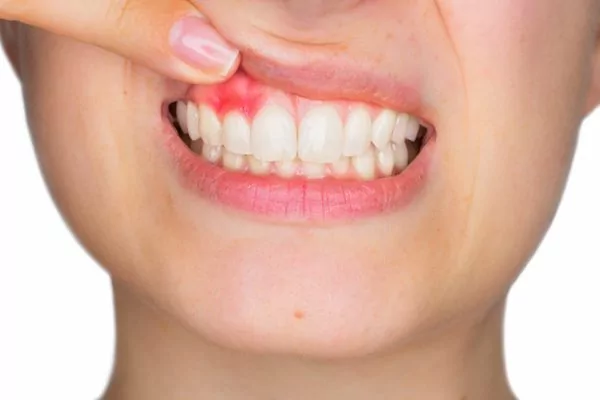4 Things Science Has to Say About the Bacteria in Your Mouth

When you think about oral hygiene, you may only think about brushing and flossing to prevent bad breath. However, taking care of your mouth is so much more than that. There are billions of bacteria in your mouth. Some of them are good for your health, while others are not. After reading that fact, you’re probably curious to learn more. Keep reading to discover how much bacteria is in your mouth and what you can do about it.
How Much Bacteria Is in Your Mouth
Out of the billions of bacteria in your mouth, there are roughly 700 species. However, only 15 to 20 bad species of bacteria are estimated.
Scientists refer to the organisms in your mouth as the oral microbiome. They are an ecosystem of various bacteria that feed, multiply, and breed, and some of them die. Those species are pathogenic bacteria that cause gum inflammation, decay, and tooth loss.
Also, streptococcus mutans feed on starchy carbs and sugar, creating acid that erodes your tooth enamel. They’re also the primary culprit of tooth decay and other oral diseases.
Furthermore, porphyromonas gingivalis is an organism that shows up when you have periodontal disease, and it helps to destroy your gum tissue and damages the bone that supports your teeth.
How Does Bacteria Grow in Your Mouth?
Oral bacteria thrive within the insides of your cheeks, tonsils, tongue, and palate. Since your mouth is warm and wet, it’s the perfect habitat for unicellular microorganisms.
But despite the perfect breeding ground, not all germs stay in your mouth. When you chew and swallow, many of them end up in your gut and bloodstream. Plus, each time you brush your teeth or floss, the bacteria gets forced into the small vessels in your gums.
Interesting Discoveries Regarding Mouth Bacteria
You’d be surprised to learn all the interesting things scientists have discovered about oral microbiomes. Below is some information you probably didn’t know:
1. Bacteria Begins Growing at Birth
Some bacteria in your mouth get washed away when you drink a glass of water, and others transfer out when you kiss someone. However, some bacteria stay and colonize.
It’s still a mystery why some oral microbiomes leave and others remain. But it’s quite clear that the ones that stay in your mouth are usually there from birth and continue to evolve.
One discovery that’s been uncovered is that a mother’s oral health affects her child. If your mother had gum disease or smoked while pregnant, you’re born with extra pathogens in your mouth. Therefore, it puts you at a higher risk of having cavities and gum disease in the future.
2. Your Oral Health Hinders Other Parts of Your Body
Scientifically speaking, your mouth is the entryway to the rest of your body. If pathogens in your mouth multiply in excess, they can transport to your blood vessels and other organs.
For example, let’s say you have inflammation from a periodontal disease that destroys the tiny blood vessels in your gums. The damaged vessels allow the oral bacteria to transfer into your bloodstream.
Believe it or not, these bacteria have been associated with numerous diseases, such as diabetes, heart disease, depression, and Alzheimer’s. However, there isn’t any substantial evidence to prove that oral germs cause these diseases.
On the other hand, health problems in other body areas can affect oral health. Individuals with diabetes are more likely to have gum disease. The reason being is that they are more prone to contract infections overall.
3. Lifestyle Choices Affect the Microbiome in Your Mouth
The community of harmful bacteria in your mouth is called biofilm, better known as plaque. They create a slimy feeling on your teeth when you wake up or throughout the day.
If you begin to have an excess of these germs because of poor oral hygiene or diet, it can cause the bad bacteria to take over. The imbalance can cause cavities, gum disease, bad breath, and tooth loss if the issue isn’t taken care of.
One of the most impactful ways to create good bacteria is using mouthwash. But if you want to get rid of harmful germs, an antibiotic spray for mouth bacteria is highly effective.
4. Consume Probiotics
Dental research is still finding new ways to make your mouth’s microbiome healthier. One discovery shows that certain foods and probiotics can make a difference.
For instance, blackberries have phytochemicals that reduce inflammation and can assist in stabilizing the early stages of oral cancer.
Furthermore, good oral hygiene plays a huge role in the overall balance of the ecosystem in your mouth. Not to mention, it also prevents issues like cavities and periodontal disease.
Flossing every day and brushing twice a day can help ensure your mouth’s overall health. Adding mouthwash to your routine further minimizes the risk of dental problems like plaque and gingivitis.
Keep the Bacteria in Your Mouth Under Control
After learning about the bacteria in your mouth, you probably want to brush your teeth and floss immediately. If so, that’s a good thing. By staying on top of your oral hygiene, you’re taking care of your overall health.
Was this article informative for you? If the answer is yes, feel free to browse the rest of the blog. Our website contains various lifestyle, technology, business, and more topics. There’s something for everyone!

